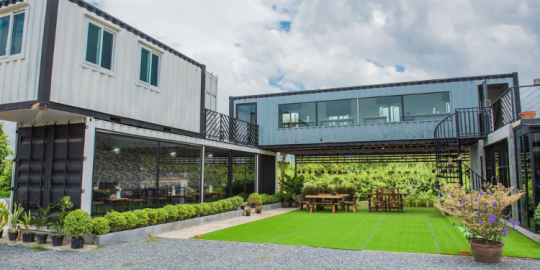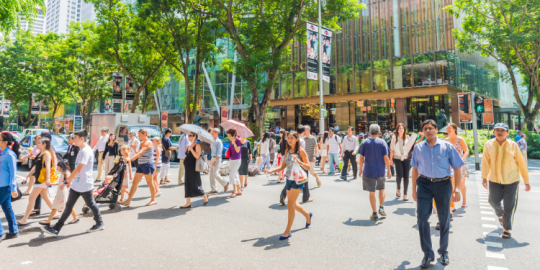According to the 9th HSBC Expat Explorer report released this Wednesday, September 21, 2016, emerging economies have been attracting more and more foreign entrepreneurs. While Singapore ranks, for the 2nd time in a row, as the best country to live and work for expatriates, many countries stand stand out for the various benefits they provide to foreign entrepreneurs.
The challenge of emerging countries
While the United States and Australia remain top destinations for foreign entrepreneurs, other countries, particularly in Latin America, seem to offer significant business growth prospects. Indeed, 44% of respondents reveal that they have benefited from a better regulatory framework, namely in Peru, Brazil and Chile, compared to 35% of those who ventured in developed economies. India, Indonesia and Kenya are also positioning themselves among the countries with high development and growth potential.
The motivation and ambition to succeed seems to have been the biggest challenge for more than half of foreign entrepreneurs, compared to 43% of foreign employees globally. In fact, financial gains and a better regulatory framework has been a significant factor for a small proportion of foreign entrepreneurs surveyed. Setting up a business abroad has allowed them to enjoy a better quality of life and discover new cultures while benefiting from various professional opportunities.
The advantage of economic powerhouses
North America, especially US cities such as San Francisco and Boston, remains a leading destination for entrepreneurship thanks to the famous Silicon Valley which is a real pioneer in the field of high technology. Globally, expat entrepreneurs in the USA say they are confident about economic and professional opportunities provided by the country thanks to its business-friendly environment.
Moreover, more than half of foreign entrepreneurs having settled in the United States say they have received more help and support than they would have in their respective home countries and are highly positive about the American entrepreneurial culture. A little further away, Canada also attracts foreign entrepreneurs in large numbers, especially for its strong economy and political stability.
As the world's biggest economic powerhouse, China also promotes the entrepreneurial culture, especially in the field of technology. Located in the Guangdong Province, the Pearl River Delta, which has experienced an accelerated development over the years, is deemed to be a real haven for expatriates, both in terms of employment and entrepreneurship.
Indeed, not less than 22% of foreign nationals living in the Guangdong Province are self-employed, which is the highest proportion in the whole country. Moreover, 63% of them say they are confident about the region's economy while 55% say they are confident about the Chinese economy globally. Hong Kong is no exception: 53% of foreign entrepreneurs believe that it is a good place to start a business.
The Australian market
Australia, also attracts foreign entrepreneurs by providing not only economic opportunities but also relevant skills. While 53% of foreign business owners say that there are various setting up and growth prospects in Australia, a similar proportion believe that the country has a qualified and skilled local workforce that can help them achieve success. This is a rather high proportion compared to other countries such as Canada, the US, or even the United Kingdom.
India, Bahrain, the United Arab Emirates and Oman also feature among the key destinations for foreign entrepreneurship. Indeed, the report reveals that 1 in 10 expatriates living in India have moved there with the intention of setting up a business, which is more than twice the average in the whole Asia-Pacific region.
Sources :
















